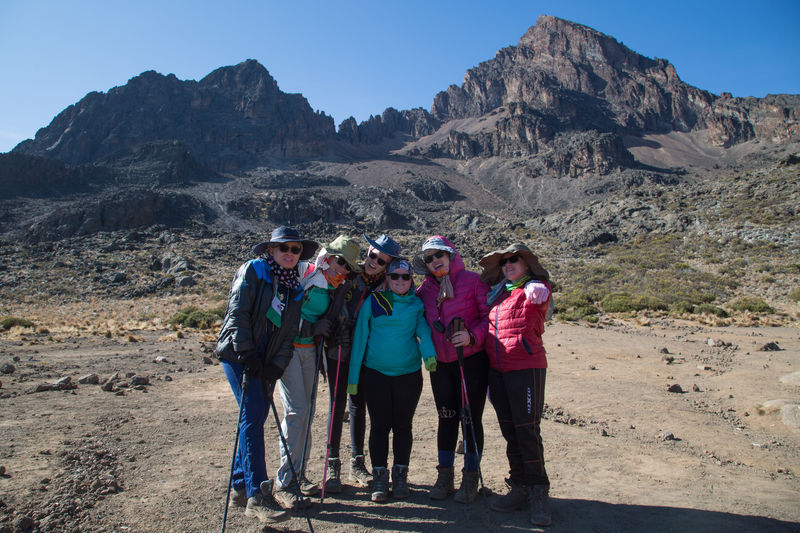
SA Actress with Albinism Vows to Fight On After Kilimanjaro Climb
NAIROBI (Thomson Reuters Foundation) – South African actress and singer Regina Mary Ndlovu, together with five other African women with albinism with whom she made an attempt on the continent’s highest peak, Mount Kilimanjaro, said on Tuesday the trek was just the beginning of efforts to raise awareness and dispel negative images of people with […]

NAIROBI (Thomson Reuters Foundation) – South African actress and singer Regina Mary Ndlovu, together with five other African women with albinism with whom she made an attempt on the continent’s highest peak, Mount Kilimanjaro, said on Tuesday the trek was just the beginning of efforts to raise awareness and dispel negative images of people with the rare skin condition.

The women – from Kenya, Tanzania, Nigeria, SA, Zimbabwe and Senegal – began their ascent up the 5,895-metre (19,340-ft) summit in Tanzania on Oct. 1, but only one made it all the way to the summit, Uhuru peak.
Zimbabwean educator Nodumo Ncomanzi, 26, who reached Kilimanjaro’s highest point on Sunday, said the women’s struggle up the mountain reflected the daily struggles of thousands of people with albinism in Africa, and across the world.
The rare genetic condition results in a lack of pigmentation in the skin, hair and eyes. Sufferers are frequently shunned and attacked in Africa due to a lack of awareness.
In some countries, they are targeted for their body parts, which are prized in witchcraft for use as lucky charms or in magic potions. Women risk rape due to myths suggesting sex with a woman with albinism can cure AIDS.
The six women on the “Climb for Albinism” expedition have faced their own struggles growing up with the condition – some more horrific than others – and are now fighting the stigma and raising awareness about the condition.
One of the climbers is a rape survivor, while another climber was abandoned by her mother when she was born. One of the climbers, Tanzanian Mariamu Staford, had her arms hacked off 10 years ago when three men entered her home as she slept.
“I am happy that I challenged myself and realised that I am able to conquer anything,” said Staford, 35, who reached 4,300 metres before developing severe altitude sickness and being airlifted.
Ncomanzi (who made it to the top) told the Thomson Reuters Foundation by phone from Moshi in Tanzania: “We are feeling very accomplished. It’s one thing to pledge to climb Kilimanjaro, and another to actually do it.
“Considering the extreme conditions we faced, we are all proud of our respective accomplishments.
“I don’t think the message we were trying to send has been lost because five of us did not make it to the summit. The individual accomplishments of each of climber speaks volumes and helps amplify the voices of persons with albinism.”
The climb, said Ncomanzi, was just the beginning of their campaign and the women would organise more initiatives to highlight the challenges faced by people with albinism.
Joining Ndlovu, Ncomanzi and Staford, were Senegalese bass player Maah Koudia Keita, Nigerian optometrist Onyinye Edi, and Kenyan activist and expedition co-founder Jane Waithera.
Elia Saikaly, film-maker and co-founder of the expedition, said he was extremely proud of the six women, aged between 26 and 35.
“Mount Kilimanjaro threw just about everything at us and in the end, the Climb for Albinism flag was raised on the roof of Africa,” Saikaly said in a statement.
(Reporting by Nita Bhalla @nitabhalla, Editing by Claire Cozens. Please credit the Thomson Reuters Foundation, the charitable arm of Thomson Reuters, that covers humanitarian news, women’s rights, trafficking, property rights, climate change and resilience. Visit http://news.trust.org)
WATCH In the lead up to the Mount Kilimanjaro climb
https://www.facebook.com/ReginaMary.MyVoice/videos/1837065233029074/
https://www.facebook.com/edi.onyinye/posts/2395767063773211
